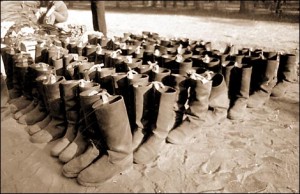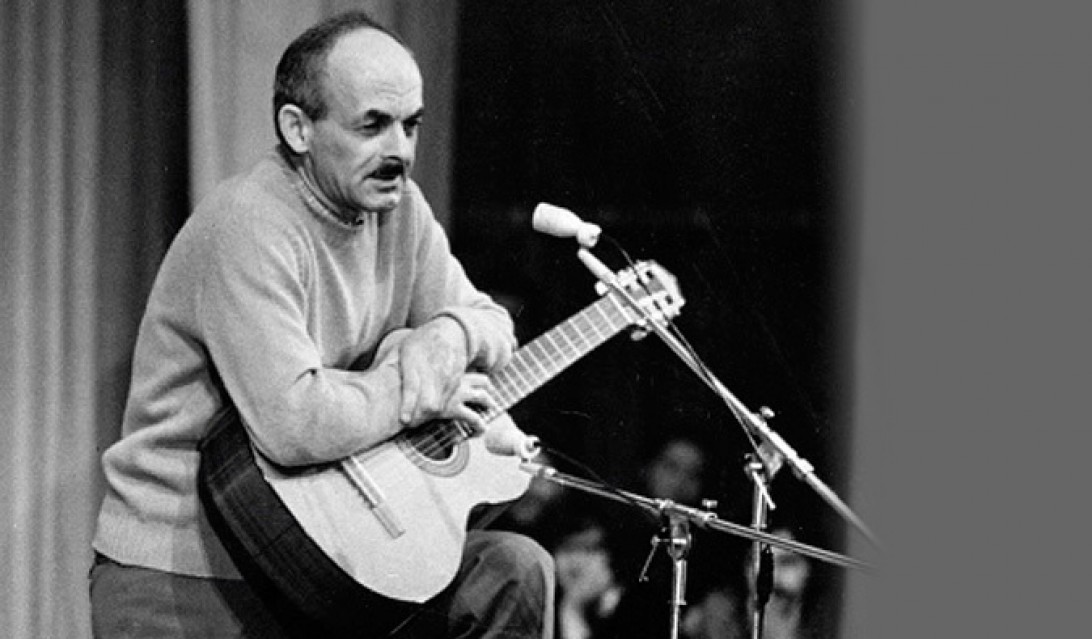As evidenced by its march-like rhythm and the language that constitutes its lyrics, “Song about the Soldiers’ Boots” describes the return of soldiers from the front following the end of the Great Patriotic War in 1945. “Soldiers’ Boots” was one of Okudzhava’s earliest and most popular songs; Marietta Chudakova suggests that the piece’s popularity can be attributed to the fact that “the emotional impact of the impossibility of continuing to live ‘in the old ways,’ with no thought for each other, with no solidarity, was likely to resonate with Soviet soldiers back from the front, who felt starved of oxygen after the war” (Chudakova 41). Chudakova also proposes that J.B. Priestly’s “Three Men in New Suits”—originally published in 1945 and translated into Russian the following year—could have served as a prototext for Okudzhava’s “Soldiers’ Boots.” Priestly’s novel details the return of three soldiers from the front lines of the Second World War to find their home lives in complete disarray. The soldiers ultimately decide that they can no longer live the way they had before and “will have to begin life anew” (Chudakova 40). The novel’s ending appears to be echoed in Okudzhava’s song (“А мы рукой на прошлое: вранье!/А мы с надеждой в будущее: свет!”); although the soldiers regard the future with hope, the song’s lyrics also point to the grisly reality of continued conflict and death (“А по полям жиреет воронье,/а по пятам война грохочет вслед…”).
Scholarly text consulted:
Chudakova, Marietta. “‘The Return of Lyricism’ in ‘Bulat Okudzhava–His Circle and His Times: A Discussion. Russian Studies in Literature.'” Russian Studies in Literature, 41:1 (2004): 16-44.
Песенка о солдатских сапогах
Вы слышите: грохочут сапоги,
и птицы ошалелые летят,
и женщины глядят из-под руки?
Вы поняли, куда они глядят?
Вы слышите: грохочет барабан?
Солдат, прощайся с ней, прощайся с ней…
Уходит взвод в туман-туман-туман…
А прошлое ясней-ясней-ясней.
А где же наше мужество, солдат,
когда мы возвращаемся назад?
Его, наверно, женщины крадут
и, как птенца, за пазуху кладут.

А где же наши женщины, дружок,
когда вступаем мы на свой порог?
Они встречают нас и вводят в дом,
но в нашем доме пахнет воровством.
А мы рукой на прошлое: вранье!
А мы с надеждой в будущее: свет!
А по полям жиреет воронье,
а по пятам война грохочет вслед.
И снова переулком – сапоги,
и птицы ошалелые летят,
и женщины глядят из-под руки…
В затылки наши круглые глядят.
